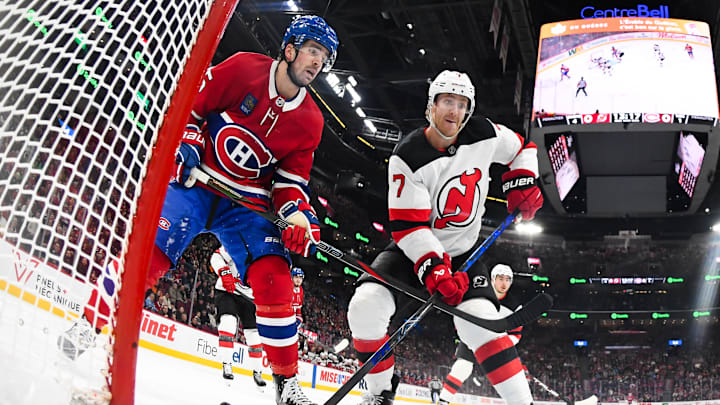Right now, the New Jersey Devils are enjoying their place in the NHL standings. They've sat in a playoff spot for the entire season. They started the season off a week before everyone else, beating the Buffalo Sabres twice in the Global Series in Prague, Czechia. The season has had its ups and downs, but the good news is that it's almost time for the playoffs. As of this writing, we are exactly one month from the end of the season.
However, imagine if the season was just a little longer. Two more games wouldn't hurt anyone, right? It would add a ton or extra revenue to the league, and it could add another 15-20 premium matchups if the schedule works out right. If they are taking preseason games away, it's a win-win, right?
No. This is a terrible idea. The Athletic's Pierre LeBrun reported that the NHL is considering an 84-game schedule that would start in September. In theory, it would end at the same time as it does now. Even if that is true (the NHL postseason cannot go further into the summer), it is still a bad idea.
84-game schedule and a September start being considered for 2026-27, and could league cancel ’26 All-Star Game? My latest Rumblings for @TheAthletic ⤵️ https://t.co/vvSjcNy3uZ
— Pierre LeBrun (@PierreVLeBrun) March 13, 2025
This trend is likely coming from the popularity that's come with the 17-game schedule in the NFL. The league heard initial murmurs when they added a game to the schedule, but the addition revenue it's brought and bloated salaries for the players has everyone happy. Yet, football is very different than hockey.
Surprisingly, injury data is relatively flat across 17 games as it was in 16 games. There are reasons for this, as concussion technology is getting better, and rules are in place to protect offensive players. Quarterback injuries are basically the same, with 59 quarterbacks starting a game this year, and 57 starting one in 2019 (the last non-COVID year with 16 games).
The NHL should absolutely ignore calls to move to an 84-game regular season
Hockey is not football, and the rules aren't in place to avoid injuries. Since hockey is played on ice, it takes one wrong move to knock a guy out for the season. Just ask Jack Hughes. If you add two more games on the ice without major changes to the rules, then adding games will lead to star players missing the postseason. That hurts the bottom line a lot more than sticking to an 82-game season.
However, it's not just injuries that hurt the NHL in this scenario. Why would they put Opening Night in the first month that football is played? Starting the season in October gives hockey fans who are also football fans (so most of them) time to get prepared and excited for the start of the season. If you move it to September, you're starting the season the same month as football.
This just dilutes the game. At some point, the NHL will water down it's product to a point of no return. We get it's a business, but there's talk of adding at least two but possibly four more expansion teams. Yet another money grab that dilutes the sport. This will only lead to teams with more AHL-level talent on the roster.
If anything, the NHL needs to do a better job of setting up their schedule. The back-to-backs are not set up equally among teams, and somehow, the teams in the bigger markets tend to get spared. The travel is a little predictable, but that's not always a good thing. Teams in the Northeast like the Devils have an easier time with the travel, but a team like Dallas having to go on a plane one more time each season would only hurt.
There are other issues, like tax implications and retroactive salaries (although escrow agreements could make up for that), but this is the gist. The NHL doesn't need 84 games. The fans don't want 84 games. We're pretty sure the players won't want this, either. There are better ways to make money, especially with all the momentum the NHL has built.
